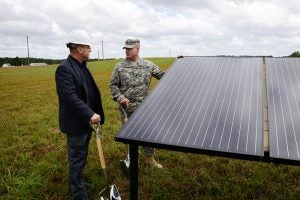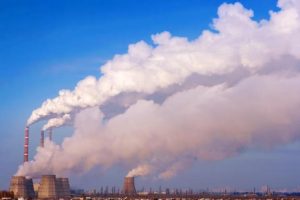 October 10, 2025
by Jenny King
Federal Rollbacks
Natural Resources
Wildlife
October 10, 2025
by Jenny King
Federal Rollbacks
Natural Resources
Wildlife
The Trump administration has issued numerous rollbacks of legislation critical to wildlife preservation, which will result in loss of biodiversity and ensuing litigation.
 March 13, 2025
by Helen Ma
Natural Resources
Regulations
Water
March 13, 2025
by Helen Ma
Natural Resources
Regulations
Water
The Supreme Court ruled that the EPA exceeded its authority under the Clean Water Act by imposing broad “end-result” permit requirements, marking a significant post-Chevron shift in environmental law.
 March 11, 2025
by Isaac Worsham
Litigation
Natural Resources
Regulations
Water
March 11, 2025
by Isaac Worsham
Litigation
Natural Resources
Regulations
Water
The Supreme Court has assumed the mantle of “expert” decisionmaker—contravening the meaning and intention of the Clean Water Act, overruling decades of precedent, and limiting EPA’s ability to carry out their congressionally assigned and executive-directed duties.
 February 27, 2025
by Sarah Bosworth
Energy
Natural Resources
Renewable Energy
February 27, 2025
by Sarah Bosworth
Energy
Natural Resources
Renewable Energy
Artificial intelligence has taken the world—and the energy sector—by storm. To prevent AI from delaying the decarbonization of the electric grid, Virginia legislators have adopted a statutory scheme that incentivizes nuclear power.
 January 31, 2025
by Alimatou Nyass
Legislation
Natural Resources
State and Local
January 31, 2025
by Alimatou Nyass
Legislation
Natural Resources
State and Local
Different levels of government can use legislation to support tree restoration efforts. The ability of trees to combat different environmental harms underscores the importance of legislatively backed initiatives.
 November 15, 2024
by Omid Rahimdel
Energy
Natural Resources
November 15, 2024
by Omid Rahimdel
Energy
Natural Resources
Uranium mining near the Havasupai Reservation in Arizona could contaminate the aquifer that provides the Havasupai with their water supply, jeopardizing the health of the tribe.
 November 1, 2024
by Robert Elliott
Climate change
Natural Resources
November 1, 2024
by Robert Elliott
Climate change
Natural Resources
The Department of Defense has made significant progress in advancing climate objectives, going from “assessing” climate impacts to building climate concerns into planning and acquisition processes.
 April 4, 2024
by Can Cao
Climate change
Energy
International
Natural Resources
Oil and Gas
Renewable Energy
April 4, 2024
by Can Cao
Climate change
Energy
International
Natural Resources
Oil and Gas
Renewable Energy
This article explores the Middle East's shift away from oil dependence towards renewable energies, highlighting how this energy transition has resulted in regional collaboration, economic diversification, and global implications.
 March 21, 2024
by Damon Hays
Agriculture
Climate change
Natural Resources
Regulations
Renewable Energy
Sustainability
March 21, 2024
by Damon Hays
Agriculture
Climate change
Natural Resources
Regulations
Renewable Energy
Sustainability
The current impasse over the nation's premier agriculture legislation is one that reflects the competing interests of modern food production practices and climate change mitigation efforts.
 January 29, 2024
by Mary Bush
Air
International
Natural Resources
January 29, 2024
by Mary Bush
Air
International
Natural Resources
As air pollution and global warming worsens across the United States, attorneys are looking to the Atmospheric Trust Doctrine to hold states accountable for their pollution.











